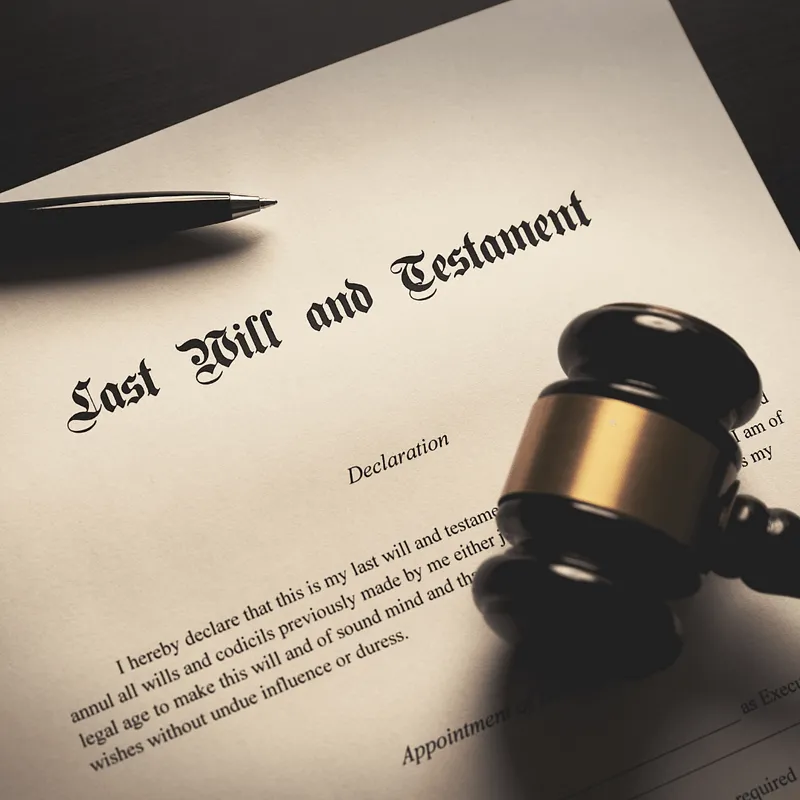Choosing the Right Executor: Protecting Your Wishes and Your Loved Ones
Writing a will is one of the most powerful steps you can take to protect what matters most: your loved ones, your identity, and the legacy you’ve worked hard to build.
However, even the most carefully drafted estate plan can fall apart if the wrong person is chosen to carry it out. The executor of your will is the person who brings your plan to life. Their choices, attention, and respect for your values will shape how your wishes are honored.
For LGBTQ+ families, small business owners, and anyone with unique estate assets or complicated relationships, estate planning carries extra weight. Choosing the right personal representative is hands-down the best way to preserve your dignity, your relationships, and your future.
Let's talk about who should be the executor of your will and why it matters.
What an Executor Does
When you appoint an executor, you’re asking someone to step into your shoes at one of the most sensitive times in your family’s life. This person (or sometimes a professional organization) is responsible for making sure your will is carried out faithfully and legally.
Many people make the mistake of thinking they don’t have enough assets to warrant a will or executor, but that’s simply not true. Estate planning covers more than that, and your executor will have several duties.
Responsibilities of an Executor
Executors must:
- Collect and value your assets.
- Pay outstanding debts and handle tax obligations.
- Distribute property, investments, and personal belongings as your will directs.
- File paperwork with the court and maintain transparency with beneficiaries.
In practice, that could mean everything from selling a home and closing bank accounts to transferring heirlooms or mediating family disputes. This level of responsibility requires not only organizational skill but also deep respect for your relationships and identity.
Probate and Assets
Most wills go through probate court, the legal process of validating the will and supervising the estate’s distribution. Rules vary by state, but an executor is responsible for navigating these steps.
Some assets, like joint accounts or retirement plans with named beneficiaries, can bypass probate. Others must go through the process.
A knowledgeable executor (or one who seeks appropriate legal or professional guidance) will understand the differences. They'll make sure each asset is handled correctly and minimize delays or confusion for beneficiaries.
Not all executors start with this expertise, so seeking advice from an attorney or financial professionals when needed is an incredibly important part of the role.
Choosing the Right Executor: Key Considerations
The right executor blends personal trustworthiness with practical skills. As such, the best choice is someone who will respect your wishes without hesitation and handle executor duties thoughtfully.
A Trusted Family Member or Loved One
Many people choose someone closest to them to carry out their wishes, such as a spouse, partner, adult child, or trusted friend. What matters most is not the legal label, but their reliability, respect for your identity, and willingness to shoulder important responsibilities, even during emotional times.
For LGBTQ+ community members, this might mean selecting a chosen family member over a biological relative if that better reflects your true support system. Chosen families can provide the understanding, acceptance, and love that may not always be present in biological relationships.
Recognizing and including these important connections helps make sure your advance directive really reflects the people who support and care for you the most.
Naming More Than One Executor
It might seem practical to name more than one executor, especially if you want to balance family dynamics or share the workload. In reality, appointing co-executors often creates more problems than it solves.
When two or more people share the role, every decision requires agreement. If they disagree (even on minor issues), the estate can be tied up for months while conflicts are resolved. These disputes sometimes escalate into costly court battles, draining estate resources and straining family relationships.
The logistics can also be cumbersome. Many banks, financial institutions, and government agencies require all executors to sign off on documents.
If your co-executors live in different states or simply have busy schedules, routine paperwork can take weeks longer than it should. That means delays in paying bills, distributing assets, and closing the estate.
In most cases, appointing a single, trustworthy executor who is capable and organized will make the process smoother, faster, and far less stressful for everyone involved. If you’re worried about fairness, you can still name backup executors in case your first choice is unable to serve.
Special Considerations for LGBTQ+ Families
For those of us in the LGBTQ+ community, estate planning is truly an act of care and self-respect.
The future of same-sex marriage in America remains uncertain. Legal challenges, like those threatening Obergefell v. Hodges, could destabilize marriage equality and leave your relationships vulnerable to shifting laws.
That’s why it’s so vital to pick an executor who genuinely sees you, understands your wishes, and will stand up for those wishes if necessary.
Honoring Your Relationships and Identity
Your executor should deeply understand that family isn’t always defined by blood ties or legal status, but by the bonds of love, trust, and chosen connection.
For many LGBTQ+ individuals, partners, chosen family, and close friends may hold more significance than relatives by birth or marriage. You'll want to select someone who will honor these relationships and safeguard the people who matter most to you, even if doing so means facing resistance from others or challenging traditional expectations.
Your executor must be prepared to advocate for your wishes, respect your boundaries, and make sure your loved ones are treated with dignity and care throughout the probate process. This may include litigation, defending any challenges to your estate plan.
Gender Identity and Legal Documents
If you have updated your legal name or gender marker, your executor will need to be fully aware of which documents reflect your affirmed identity and where to find them. This includes passports, driver’s licenses, birth certificates, and any other legal paperwork. This is especially important if any assets are titled in your dead name; the executor will need to show proof that this is your asset.
An executor who is sensitive, informed, and affirming will help make sure your true identity is honored in all legal and administrative proceedings. Their attention can help prevent misgendering, deadnaming, or other forms of disrespect, providing comfort and affirmation not only for you but for your loved ones, as well.
Executors for Business Owners and Entrepreneurs
If you own a small business, your executor may need to step into management, handle compliance tasks, or prepare your company for sale. This responsibility is not for everyone.
- Some business owners appoint a personal executor for family matters and a co-executor (or professional) for business operations.
- Make sure your succession plans are documented and updated.
- Choose someone capable of handling payroll, contracts, and licenses—or make sure they have access to trusted advisors who can.
By putting the right people in charge of these responsibilities, you’ll help your business run smoothly and avoid costly legal mistakes.
When Professional Estate Planning Support Is Worth It
Even if you choose a trusted loved one as your executor, partnering them with experienced professional support can be invaluable.
The responsibilities placed on an executor are significant. Working through complex legal requirements, handling tax matters, and managing probate paperwork can quickly become a burden.
Professionals such as attorneys, accountants, and financial advisors or planners are there to shoulder some of this burden, offering expertise and guidance at every step to help prevent costly mistakes and reduce emotional stress.
At ALH Law Group, we understand how challenging and emotionally taxing this process can be for executors and their families. We work closely with clients, providing compassionate support and clear explanations to help them feel confident and informed as they move through each stage.
For LGBTQ+ families, entrepreneurs, and those with nontraditional estates and financial affairs, having a knowledgeable and empathetic advocate by your side can transform a confusing, stressful experience into one marked by clarity, reassurance, and peace of mind.
Steps to Secure the Right Estate Executor
- Talk to your chosen executor. Confirm they’re willing and explain what the role involves.
- Communicate with loved ones. Notify beneficiaries of who you’ve chosen to avoid surprises.
- Keep documents current. Update your will and supporting papers as life changes. Store them securely and tell your executor where to find them.
Your executor is more than a name on a document; they are your advocate when you can no longer speak for yourself. Choosing wisely protects your family and honors your identity, today and tomorrow.
Who Should Be the Executor of Your Will? Let's Talk About It.
Did you know that nearly 25% of people say nothing would motivate them to create an estate plan, according to Caring.com? If you’re in that boat, know that you’re likely leaving your legacy and loved ones unprotected.
At ALH Law Group, we help you take proactive steps to protect what’s near and dear to you. Whether you’re building a plan for your chosen family, securing the future of your business, or making sure your true self is honored, our attorneys are here to serve as your trusted advocates.
Start your journey today. Contact our team to discuss your own financial affairs and find an estate executor you can trust.





